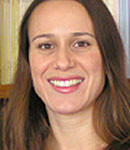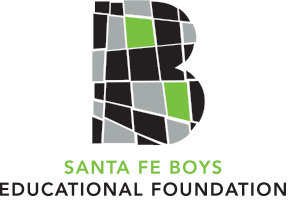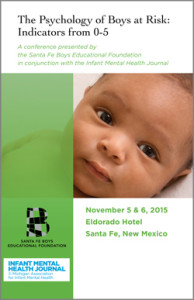Psychology of Boys at Risk: Indicators from 0-5
November 5-6, 2015 | Eldorado Hotel, Santa Fe, New Mexico
AGENDA AT A GLANCE
Day 1 | Thursday, November 5th
7:30-8:30 Registration and Complimentary Continental Breakfast, Eldorado Hotel
8:30-9:00 Welcome by Paul Golding, PhD, President, Santa Fe Boys Educational Foundation
9:00-10:00 Keynote Address: Allan Schore, PhD, UCLA, The Developmental Neurobiology and Psychology of Boys at Risk
10:00-10:20 Coffee Break
10:20-10:25 Introduction, by Paul Spicer, PhD, University of Oklahoma, of Plenary Presenters on Boys at Risk as Seen Through Longitudinal Outcomes
10:25-11:00 Daniel Shaw, PhD, University of Pittsburgh, Early Childhood Predictors of Boys’ Antisocial Behavior and Adjustment in Adolescence and Early Adulthood
11:00-11:30 Devi Miron, PhD, Tulane University, Stress and Psychopathology Following Severe Deprivation: Differential Effects on Boys and Girls
11:30-12:00 Marjorie Beeghly, PhD, Wayne State University, Sex Differences in Early Indicators of Developmental Vulnerability during Early Childhood: Risk, Resilience, and Relationships
12:15-1:15 Lunch
1:30-2:00 Leon Puttler, PhD, University of Michigan, Early Risk Factors in the Development of Alcohol and Other Substance Use Problems
2:00-2:40 Panel Discussion & Q&A on Boys at Risk as Seen Through Longitudinal Outcomes, Moderated by Paul Spicer, PhD, University of Oklahoma
2:50-3:40 Symposia and Workshops “A”
3:40-4:00 Coffee Break
4:00-4:50 Symposia and Workshops “B”
5:00-6:00 Reception
Day 2 | Friday, November 6th
7:30-8:30 Complimentary Continental Breakfast
8:30-9:00 Introduction to Day 2, by Paul Golding, PhD, President, Santa Fe Boys Educational Foundation
9:00-10:00 Keynote Address: Melissa Hines, PhD, University of Cambridge, Testosterone and the Development of Human Gender-Related Behavior
10:00-10:30 Marco Del Giudice, PhD, University of New Mexico, Attachment and Developmental Risk in Boys: An Evolutionary Perspective
10:30-10:50 Coffee Break
10:50-11:30 Panel Discussion with Allan Schore, Melissa Hines, and Marco Del Giudice, & Q&A on Bio/Evolutionary Perspectives on Boys at Risk, Moderated by Hiram Fitzgerald, PhD, Michigan State University
11:40-12:30 Symposia and Workshops “C”
12:30-1:30 Lunch
1:40-1:45 Introduction, by Marvin McKinney, PhD, Michigan State University, of Plenary Presenters on Focusing on Cultural Context and Boys at Risk
1:45-2:15 Iheoma Iruka, PhD, Buffett Early Childhood Institute, University of Nebraska, Revisioning Early Childhood Education for Black Boys: Seizing Opportunities and Minimizing Risks
2:15-2:45 Natasha Cabrera, PhD, University of Maryland, The Early Experiences of Latino Boys: A Risk and Protective Approach
2:45-3:05 Coffee Break
3:05-3:35 Michelle Sarche, PhD, University of Colorado at Denver, American Indian and Alaska Native Boys: Risk and Resilience amidst Context and Culture
3:35-4:15 Panel Discussion & Q&A Moderated by Marvin McKinney, PhD, Michigan State University, on Focusing on Cultural Context and Boys at Risk
4:15-4:30 Closing Overview by Paul Spicer, PhD, Oklahoma University: Summary Reflections
4:30-4:40 Closing Comments by the Conference Sponsor, Paul Golding, PhD, President, Santa Fe Boys Educational Foundation
CONFERENCE KEYNOTE & PLENARY PRESENTERS
Panel: Bio/Evolutionary Perspective on Boys at Risk
Among the invited presenters will be the keynote speakers—Allan Schore of UCLA and Melissa Hines from the University of Cambridge. They will deliver overviews of boys’ development from two different perspectives, and will be jointed by Marco Del Giudice of the University of New Mexico on a panel that will discuss Bio/Evolutionary Perspectives on Boys at Risk.

Allan Schore, PhD, UCLA: The Developmental Neurobiology and Psychology of Boys At Risk
Dr. Schore is the author of four seminal volumes of affect regulation, disorders of the self, and psychotherapy. His first, Affect Regulation and the Origin of the Self, is in its 14th printing. He is past editor of the Norton Series on Interpersonal Neurobiology and a reviewer on the editorial staff of 40 journals across a number of scientific and clinical disciplines. Dr. Schore has received numerous honors for his work, including an award for Outstanding Contributions to Practice in Trauma Psychology from Division 56 (Trauma Psychology) and the Scientific Award from Division 39 (Psychoanalysis) of the American Psychological Association.
Summary: The alarming increased risk of boys for educational, behavioral, and mental health problems is well documented, and yet few studies have been done on the early development of these deficits. Utilizing an interdisciplinary perspective, Dr. Schore will discuss this problem through the lens of neurobiologically-informed modern attachment theory and current research on gender differences in early brain development. Focusing on early affective more than later cognitive functions, he will describe how social and emotional deficits of the early developing right brain represent the core of the risk factors in male development over the rest of the lifespan. He will also discuss the relevance of interpersonal neurobiology for early assessment and interventions with infant and toddler boys.

Melissa Hines, PhD, University of Cambridge: Testosterone and the Development of Human Gender-Related Behavior
Dr. Hines is the Director of the Hormones and Behaviour Research Lab, University of Cambridge. Her background is in personality and developmental psychology, as well as neuroscience and clinical practice. She is Past-President of the International Academy of Sex Research and a recipient of the Shephard Ivory Franz Award for Distinguished Teaching at UCLA. In over 75 publications appearing in Child Development, Psychological Science, and other prestigious outlets, Dr. Hines and her colleagues have investigated both nature and nurture in children’s gender development.
Summary: Dr. Hines will evaluate evidence that testosterone, before and shortly after birth, influences the development of human gender-related behavior. She will describe the behaviors that have been studied in relation to early testosterone exposure, and will present current thinking regarding the mechanisms by which testosterone might exert its influences on human behavior.

Marco Del Giudice, PhD, University of New Mexico: Attachment and Developmental Risk in Boys—An Evolutionary Perspective
Dr. Del Giudice’s main research area is the evolutionary study of human development across the life course, with a focus on the origin of individual and sex differences. His work is highly interdisciplinary and emphasizes theoretical synthesis and integration across levels of analysis. He has published over 50 papers and book chapters whose topics include the transition between early and middle childhood, the development of sex differences in parent-child and romantic attachment, the role of early stress in the organization of personality and neurobiology, and the evolutionary classification of mental disorders.
Summary: Attachment styles play an important role in boys’ developmental trajectories and are associated with outcomes spanning from friendship and sexuality to violence and psychopathology. Dr. Del Giudice will show how an evolutionary perspective can illuminate attachment development in boys at risk. He will present evidence that attachment styles become sexually differentiated in middle childhood, leading to a male-typical pattern of higher avoidance and lower anxiety that persists into adulthood.
Panel: Boys at Risk as Seen Through Longitudinal Studies
A series of speakers will present on longitudinal research about the development of boys. Over the last several decades, researchers have followed the development of populations of very young children from prenatal and postnatal periods to adolescence and adulthood. The conference will feature researchers’ findings about boys from several longitudinal studies, which will permit consideration of how biological, neurological, environmental, and other experiences may combine to influence the life of young males under differing circumstances.

Marjorie Beeghly, PhD, Wayne State University: Sex Differences in Early Indicators of Developmental Vulnerability During Early Childhood—Risk, Resilience, and Relationships
Dr. Beeghly’s research evaluates how biologic and social risk and resilience factors alter parent-child interactive processes, parental adaptation, and children’s developmental, and social-emotional outcomes, in at-risk and normative samples of children from varying racial/ethnic and socioeconomic backgrounds. A primary goal is to identify specific factors from multiple ecological levels of influence (child, parental, dyadic, familial, and socio-ecological) that foster resilient child and parental outcomes. She has published numerous peer-reviewed articles and reviews, and has co-edited several books. Dr. Beeghly was a fellow in the John D. and Catherine T. MacArthur Foundation Research Network on the Transition from Infancy to Early Childhood.
Summary: Taking a biopsychosocial perspective, Dr. Beeghly will present findings from several longitudinal projects to evaluate whether sex differences exist in potential early risk indicators such as patterns of early caregiver-infant social interaction, related physiological processes, and other child, parental, and contextual factors assessed during infancy, and whether these indicators presage the emergence of behavioral or cognitive problems in toddlerhood and the preschool period.

Leon Puttler, PhD, University of Michigan: Early Risk Factors in the Development of Alcohol and Other Substance Use Problems
Dr. Puttler is the Project Director of the Michigan Longitudinal Study where he has worked for 22 years. Current research interests include the development of addictions with an emphasis on related risk factors, resilience in deviating from expected pathways, and the effects of recovery status of parental alcohol problems on the functioning of children and their parents.
Summary: The Michigan Longitudinal Study (MLS) is an ongoing prospective, high-risk for alcoholism and other substance use disorders, family study that began in the mid-1980s. Dr. Puttler will demonstrate that young boys studied in the MLS are embedded in a dynamic system of genes, epigenetic processes, brain, family, peers, community, and culture, which themselves undergo change as development proceeds and enhances their risk for future problems if nothing is done to disrupt the risky development pathways.

Devi Miron, PhD, Tulane University: Stress and Psychopathology Following Severe Deprivation—Differential Effects on Boys and Girls
Dr. Miron is a clinician, educator and researcher focused on enhancing the recovery of young traumatized children involved in the child welfare system. She has been involved with the Bucharest Early Intervention Project team since 2011. She completed an internship in Child and Adolescent Clinical Psychology at the University of New Mexico Children’s Psychiatric Center.
Summary: Dr. Miron will describe some of the differential effects on boys after the first 10 years of the Bucharest Early Intervention Project with regard to attachment and psychopathology. In this controlled trial, infants were studied in various groups depending upon whether they continued to live in institutions or were assigned to foster families.

Daniel S. Shaw, PhD, University of Pittsburgh: Early Childhood Predictors of Boys’ Antisocial Behavior and Adjustment in Adolescence and Early Adulthood
Dr. Shaw’s primary interest has been studying the development and prevention of early problem behavior among at-risk children. He currently leads or co-directs four NIH-funded longitudinal studies investigating the early antecedents and prevention of childhood conduct problems and substance use. His recent work applies an ecologically- and developmentally-informed intervention: the Family Check-Up for low-income toddlers and older children at risk for conduct problems. For mentoring of trainees, he was awarded the Friend of Early Career Preventionist Network Award by the Society for Prevention Research (2011). Dr. Shaw has more than 200 publications on risk factors associated with the development and prevention of conduct problems from early childhood through adolescence.
Summary: Dr. Shaw will review select findings from a 20-year longitudinal study of the developmental precursors of boys’ antisocial behavior and other facets of adjustment (e.g., substance use, occupational functioning). The study was initiated when children were approaching 18 months of age.
Panel: Focusing on Cultural Context and Boys at Risk
To understand what is happening to small boys requires more than looking at the parent-boy dyad; it also means understanding the culture and historical context within which development takes place. The conference has invited three presenters with extensive research experience in the question of how to appreciate the cultural and historical context of early childhood development with a focus on boys.

Natasha Cabrera, PhD, University of Maryland: The Early Experiences of Latino Boys—A Risk and Protective Approach
Dr. Cabrera focuses on father involvement and children’s development; adaptive and maladaptive factors in parenting as well as ethnic and cultural variations. She has published in peer-reviewed journals and is the co-editor of the Handbook of Father Involvement: Multidisciplinary Perspectives, 2nd Edition (Taylor & Francis, 2013) and Latina/o Child Psychology and Mental Health: Vols 1 and 2 (Praeger, 2011). Dr. Cabrera is the Associate Editor of Early Childhood Research Quarterly and Child Development and the recipient of the National Council and Family Relations award for Best Research Article regarding men in families in 2009. In 2015 The National Academy of Sciences appointed her to its committee supporting the parents of young children.
Summary: In this presentation, Dr. Cabrera will address the following questions: What do we know about Latino boys’ early development across developmental domains? What are the individual, parenting, and contextual factors that result in inequality in Latino boys’ development?

Iheoma U. Iruka, PhD, Buffett Early Childhood Institute, University of Nebraska: Revisioning Early Childhood Education for Black Boys—Seizing Opportunities and Minimizing Risks
Dr. Iruka’s research focuses on determining how early experiences impact poor and ethnic minority children’s learning and development (ages 0-8) and on how the role of the family and education environments and systems affect this process. She is engaged in projects and initiatives concerned with the way that evidence-informed policies, systems, and practices in early education can support the optimal development and experiences of low-income and ethnic minority children, such as through quality rating and improvement systems, home visiting programs, and high quality preschool programming. In particular, she has been engaged in addressing how best to ensure excellence for young Black children, particularly boys. She has published extensively, including a textbook and short-format book about early care and education practitioners working with diverse populations. She serves on numerous national boards and committees, including the White House African American Educational Excellence Workgroup
Summary: Comprehensive early education is gaining steam as a strategy to support children’s development and learning, and eventually pathways to excellence as a strategy to eliminate the achievement gap. With Black boys likely to show lower academic and social competence compared to their White peers as early as 24 months, concentrated attention is focusing on how early childhood programs and services can best be strengthened to be more effective for young Black boys. In addition to presenting data on indicators of risks, this presentation will deliver information about Black boys’ assets and about how early education programs and services can best support their development and learning and eventually their excellence and life success.
Back to top

Michelle Sarche, PhD, University of Colorado: American Indian and Alaska Native Boys—Risk and Resilience amidst Context and Culture
Dr. Sarche has worked with both urban and reservation tribal communities for nearly 20 years to better understand the challenges to, and supports for, health and development across the lifespan. Her work has focused on parenting, early care environments such as Head Start and Early Head Start, and children’s early development. Her current projects include serving as the Associate Director of the Tribal Early Childhood Research Center, co-directing the Native Children’s Research Exchange, and leading a project to understand the relationship between stress and early development among American Indian children and their parents.
Summary: This presentation will review the epidemiology of risk among young American Indian and Alaska Native boys, contextual sources of risk unique to American Indian and Alaska Native communities, including historical trauma, tribal sovereignty, and federal trust obligations. Further, the presentation will consider cultural supports for early development that operate through parenting and participation in the broader familial and community life. Last, opportunities for researchers and practitioners for supporting young American Indian and Alaska Native boys in their early development and later life course will be discussed.
CONFERENCE ORGANIZERS
& PANEL MODERATORS

Hiram Fitzgerald is Associate Provost for University Outreach and Engagement and University Distinguished Professor in the Department of Psychology at Michigan State University. He is past president and executive director of both the Michigan Association for Infant Mental Health and the International Association for Infant Mental Health, and for 16 years (1992-2008) served as executive director of the World Association for Infant Mental Health. He has been associated with the Michigan Longitudinal Study of Family Risk for Alcoholism over the Life Course for 27 years, is a member of the American Indian/Alaska Native Head Start Research Center, the Native Children’s Research Exchange, and the Tribal Research Center for American Indian/Alaska Native Early Childhood Education, the advisory board for the University of Nebraska Buffett Early Childhood Institute, the Executive Committee of the State of Michigan’s Early Childhood Investment Corporation, and a variety of interdisciplinary research teams focusing on evaluation of community-based early preventive-intervention programs in Michigan. He is a past editor of the Infant Mental Health Journal.

Paul Golding, PhD, founded the Santa Fe Boys Educational Foundation in 2013 after studying the challenges facing boys in Santa Fe, in New Mexico, and in the United States for the last 17 years. Formerly an economist, he received a doctorate in Depth Psychology at the Pacifica Graduate Institute in 2012.
Back to top

Paul Spicer is a Professor of Anthropology and a Director at the Center for Applied Social Research at the University of Oklahoma, where he has been since 2008. He was previously Associate Professor of Psychiatry at the University of Colorado. Dr. Spicer is a cultural anthropologist who has led studies in addiction, obesity, genetics, and child development with funding from the Administration on Children and Families, the National Institutes of Health (NHGRI, NIAAA, NICHD, and NIEHS), and the Robert Wood Johnson Foundation (Active Living and Substance Abuse Policy Research Programs). He is a board member of Zero To Three: The National Center for Infants, Toddlers, and Families and Editor-in-Chief of the Infant Mental Health Journal.

Marvin McKinney, PhD, is a senior consultant with University Outreach and Engagement at Michigan State University. He is also a principal with Kaleidoscope Consulting, in Durham, North Carolina. Prior to his work at Michigan State University, he was co-principal investigator for the Promoting Academic Success Program (PAS) for young boys of color ages 3-8 at the FPG Child Development Institute, University of North Carolina. Dr. McKinney received his PhD from the University of Michigan and completed a Bush Foundation post-doctorate fellowship in child development and public policy at the University of North Carolina. He was a program director for Youth and Education programs at the W.K. Kellogg Foundation in Battle Creek Michigan. He also served as associate director/community scholar in residence for the Institute for Children, Youth, and Families at Michigan State University where he conducted ethnographic research in the area of pervasive poverty and young children. Earlier in his career, he served as director of planning and community services at the Mott Children’s Health Center in Flint, Michigan. Before assuming that role he served as state coordinator for early childhood education with the Michigan Department of Education. He began his professional career as a fifth grade teacher in Ypsilanti, Michigan
SYMPOSIA & WORKSHOPS:
TOPICS & PRESENTERS
Group A – Day 1 | 2:50 – 3:40, November 5th
Title: Boys at Risk: Biological and Experiential Influences on Intersubjectivity and the Origins of Self
Presenter: Hiram Fitzgerald is past president and executive director of both the Michigan Association for Infant Mental Health and the International Association for Infant Mental Health, and for 16 years (1992-2008) he served as executive director of the World Association for Infant Mental Health. He is currently Associate Provost for University Outreach and Engagement and University Distinguished Professor in the Department of Psychology at Michigan State University.
Summary: Ammaniti & Gallese propose a framework for tracking neurobiological representations of sensory perceptions to representational models implicit to the concept of the intersubjective self. We will examine their framework covering genetic, epigenetic, neurobiological and experiential organizers of self, self-other differentiation, and the emergence of self-identity and intersubjectivity with a focus on the organization of risk for boys from conception to postnatal age 5.
__________________________________________________________________________________________________
Title: Intersection of Personal and Professional: Understanding and Supporting Infants, Toddlers, and Families through Reflective Practice
Presenter: Deborah Weatherston is the Executive Director of the Michigan Association for Infant Mental Health where her focus has been on preparing professionals to work with infants, toddlers, and families within an infant mental health framework. She has served in this capacity since 2001. She is a member of the World Association for Infant Mental Health (WAIMH) and is the current Editor of WAIMH Perspectives in Infant Mental Health.
Summary: After introducing core components of infant mental health practice that support and sustain early developing parent-child relationships, we will consider ways in which professionals may be challenged by work with infants and toddlers at risk and their families. Encouraged to be reflective, professionals are invited to explore their own relationship histories that influence their capacity to understand and support families, holding and containing their own emotions, especially related to boys and fathers.
__________________________________________________________________________________________________
Title: Boys at Risk Becoming Fathers at Risk: A Developmental Perspective
Presenter: Pam Segel has an extensive history of work as an educator and practitioner in the field of early childhood. Her professional work scope includes part-time faculty in the Early Childhood Multicultural Education Department at Central New Mexico Community College in Albuquerque, New Mexico, early childhood development and Infant Mental Health consultation, and provision of reflective consultation. Pamela is the Endorsement Coordinator for the New Mexico Association for Infant Mental Health. The focus of her research is related to the study of early relationships between fathers and their very young children.
Summary: The presenter will provide information about young men who experienced adverse childhood experiences as young boys and risk factors that may carry into parenting behavior. Discussed will be information about “at risk” father-infant relationships. Strategies for parent education, intervention, and implications for training professionals will be identified.
__________________________________________________________________________________________________
Title: On the Importance of Informing Social Policy about Boys at Risk
Presenters: Marvin H. McKinney & Patrick Babcock
Marvin H. McKinney, PhD, is a senior consultant with University Outreach and Engagement at Michigan State University. He is also a principal with Kaleidoscope Consulting, in Durham, North Carolina. Prior to his work at Michigan State University, he was co-principal investigator for the Promoting Academic Success Program (PAS) for young boys of color ages 3-8 at the FPG Child Development Institute, University of North Carolina. Dr. McKinney received his PhD from the University of Michigan and completed a Bush Foundation post-doctorate fellowship in child development and public policy at the University of North Carolina.
C. Patrick Babcock has vast experience in public policy administration, research, evaluation, and strategic development in health, mental health, social services, and welfare, as well as management and facilitation of statewide task forces and commissions. He is the former director of five State of Michigan cabinet agencies under both Republican and Democratic administrations and the former vice president for health programs at the W.K. Kellogg Foundation. Mr. Babcock has directed the Michigan Office of Drug Abuse and Alcoholism, the Office Services to Aging, the Department of Labor, the Department of Mental Health and the Department of Social Services. He also co-chaired the Michigan Mental Health Reform Commission, the governor’s blue-ribbon panel concerning the labor dispute at Northern Michigan Hospital, as well as the Michigan Child Welfare Improvement Task Force. He holds a BA from Western Michigan University and a MSW from Wayne State University
Summary: Social Science research resulting in insight and positive practices and programming is crucial, particularly as it influences and expands our knowledge and understanding about young boys of color ages 0-5. Moreover, in many instances, it should be possible to use the knowledge we have garnered from these insights in Social Science research to impact large numbers of children over a long period of time by actively using our findings to inform and influence policy. With large numbers of our focused population “at great risk” for positive health, other developmental outcomes, and early school success, it is critically important for researchers, practitioners, and policy makers to engage in productive activities, interactions, and information sharing that will aid children, families, and communities. This session will discuss and explore a focused definition of policy as it pertains to young boys of color and the importance of involving multiple communities in figuring out how to work together for the benefit of our children.
__________________________________________________________________________________________________
Group B – Day 1 | 4:00 – 4:50, Thursday, November 5th
Title: Boys at Risk: Biological and Experiential Influences on Intersubjectivity and the Origins of Self
Presenter: Hiram Fitzgerald is past president and executive director of both the Michigan Association for Infant Mental Health and the International Association for Infant Mental Health, and for 16 years (1992-2008) he served as executive director of the World Association for Infant Mental Health. He is currently Associate Provost for University Outreach and Engagement and University Distinguished Professor in the Department of Psychology at Michigan State University.
Summary: Ammaniti & Gallese propose a framework for tracking neurobiological representations of sensory perceptions to representational models implicit to the concept of the intersubjective self. We will examine their framework covering genetic, epigenetic, neurobiological and experiential organizers of self, self-other differentiation, and the emergence of self-identity and intersubjectivity with a focus on the organization of risk for boys from conception to postnatal age 5.
__________________________________________________________________________________________________
Title: Intersection of Personal and Professional: Understanding and Supporting Infants, Toddlers, and Families through Reflective Practice
Presenter: Deborah Weatherston is the Executive Director of the Michigan Association for Infant Mental Health where her focus has been on preparing professionals to work with infants, toddlers, and families within an infant mental health framework. She has served in this capacity since 2001. She is a member of the World Association for Infant Mental Health (WAIMH) and is the current Editor of WAIMH Perspectives in Infant Mental Health.
Summary: After introducing core components of infant mental health practice that support and sustain early developing parent-child relationships, we will consider ways in which professionals may be challenged by work with infants and toddlers at risk and their families. Encouraged to be reflective, professionals are invited to explore their own relationship histories that influence their capacity to understand and support families, holding and containing their own emotions, especially related to boys and fathers.
__________________________________________________________________________________________________
Title: Cumulative Risks to Language, Social-Emotional Functioning, and Behavior in Boys
Presenters: Deb Harris & Jane Clark
Jane Clarke, PhD, is a consultant and trainer for the New Mexico Infant Teams and is on the faculty of the Infant and Early Childhood Mental Health Leadership Academy at the University of New Mexico Center for Development and Disability. Her background is in Speech-Language Pathology and Special Education with post-doctoral work in Infant Mental Health. Jane has extensive assessment and intervention experience with high-risk families, regulatory-sensory processing disorders, and prenatal drug exposure, as well as trauma informed and developmentally informed practices.
Deborah Harris is a consultant and trainer for the NM Infant Teams and is faculty at the Infant and Early Childhood Mental Health Leadership Academy at University of New Mexico Center for Development and Disability, UNM-CDD. She has a master’s degree in Social Work with post-graduate work in family therapy and infant-parent psychotherapy at the Infant Parent Program started by Selma Fraiberg. Along with Jane Clarke, Deborah started the first Infant Team in New Mexico providing infants, birth to 3 in custody, and families with integrated services to promote permanency planning and positive developmental outcomes. She is a leader in trauma-informed as well as developmentally-informed practices and interventions for high-risk families.
Summary: This presentation will provide a dynamic view of language development, social emotional functioning, and behavior in boys, birth to five, with cumulative social risk factors. We will integrate different content domains and discuss interventions that address developmental change and resilience – both in meaning-making and individual pathways.
__________________________________________________________________________________________________
Title: The Boy Crisis as an Infant Mental Health Issue
Presenter: Paul Golding, PhD, founded the Santa Fe Boys Educational Foundation in 2013 after studying the challenges facing boys in Santa Fe, in New Mexico, and in the United States for the last 17 years. Formerly an economist, he received a doctorate in Depth Psychology at the Pacifica Graduate Institute.
Summary: Considerable empirical research from attachment theory in the last two decades indicates that many boys and girls begin life with different emotional tendencies based upon the influence of gender-specific innate and environmental factors. This workshop will relate these findings from developmental psychology to the problematic behaviors that make up the boy crisis.
__________________________________________________________________________________________________
Group C – Day 2 | 11:40-12:30, Friday, November 6th
Day 2 | Friday, November 6th
Title: The Socialization of Aggression in Boys and Men: Theory, Research, and the Potential for Change
Presenters: Carolyn Dayton & Erika Bocknek
Erika London Bocknek is Assistant Professor of Early Childhood Education in the College of Education at Wayne State University and the Merrill Palmer Skillman Institute. She is also Adjunct Research Investigator in Psychiatry at the University of Michigan Health System and a licensed Marriage and Family Therapist as well as an Endorsed Research Mentor (Level IV) with the Michigan Infant Mental Health Association. Dr. Bocknek studies risk and resilience in the social-emotional development of infants and toddlers with a special focus on the ways parenting and family-level processes can shape childhood developmental trajectories.
Carolyn Dayton is an Assistant Professor of Social Work at Wayne State University. She holds a joint appointment at the Merrill Palmer Skillman Institute for Child and Family Development where she serves as the Associate Director of the Infant Mental Health Program. Her research is focused on early parenting processes with an emphasis on fathering in urban settings. She has many years of experience providing clinical interventions to the families of infants and young children in a wide range of settings including home-based, center-based, and hospital programs. Dr. Dayton’s program of research is fundamentally translational and transdisciplinary; it is informed by her clinical work with families and aims to identify biological and psychosocial risk and resilience factors that influence early parenting process and early child development.
Summary: Societal, cultural, familial, psychological, and biological processes contribute to the expression of aggression and violence in boys and men. Understanding the cognitive, emotional, and behavioral regulatory strategies that are influenced by these processes and lead to the expression of aggressive behaviors is the topic of this workshop. Using a developmental lens, the intergenerational transmission of aggression and violence will be highlighted and potential intervention/change strategies within each area of influence will be examined.
__________________________________________________________________________________________________
Title: A Community Based Participatory Research Partnership: Perceptions of Children’s Adaptive Behaviors in Tribal Head Start Programs
Presenters: KyungSook Lee & Hiram E Fitzgerald
KyungSook Lee, PhD, is a research associate for the University Outreach and Engagement (UOE) at Michigan State University and has extensive experience working in UOE since 2008 on community-based research projects, including Wiba Anung, PAS, Healthy Babies, and HSOS in which she serves as data manager, data analyst, and report writer. Her work focuses on maintaining complex longitudinal data sets and conducting sophisticated analyses of quantitative data using various statistical software tools. She collaborated with the following on the research she will be presenting: Jessica V. Barnes-Najor, PhD (associate director for Community Evaluation and Research Collaborative in University Outreach and Engagement at Michigan State University), Hope Gerde, PhD (associate professor in the department of Human Development and Family Studies at Michigan State University), Ann Belleau (Head Start Director of the Inter-Tribal Council of Michigan, Inc., Head Start and Early Head Start Programs), Patricia Farrell, PhD ((Taos Pueblo) Assistant Provost Emeritus, Michigan State University).
Summary: A partnership with 9 tribes in the Midwest created a community-based participatory research study of the status of children attending Tribal Head Start programs. The Behavioral Assessment System for Children (BASC) was used to assess children’s adaptive behavior. Initial analyses revealed discrepancies between BASC standardized scale factor structures and item configurations for both parent and teacher ratings. We report new analyses based on newly generated factor structures. Boys are perceived to have high levels of activity and aggressive behaviors, coupled with low attention and social skills, suggesting that they are challenged to manage childhood adversities, including those associated with school classroom contexts and interpersonal relationships. We review differences in perceptions of parents and teachers (including tribal and non-tribal teachers).
__________________________________________________________________________________________________
Title: Minority Group Boys Need Earlier Disability Diagnosis and Services
Presenter: Dr. George Farkas received his B.A. in Mathematics from Columbia University, and his Ph.D. in Sociology from Cornell. Prior to joining the faculty at UC Irvine, he was a Professor at Pennsylvania State University. Professor Farkas’ research has focused on understanding the school achievement gap for low income and ethnic minority students. In the 1990s he applied his knowledge and interest in the achievement gap to develop a successful tutoring program that improved reading skills of low-income, minority, and limited English proficient elementary school students. This tutoring program, Reading One-to-One, was widely implemented throughout the country, and helped invent President Clinton’s “America Reads” initiative. Most recently Professor Farkas has been studying interventions and instructional techniques for disadvantaged students, as well as, with Paul Morgan and Marianne Hillemeier of Penn State, the determinants and consequences of minority disproportionate placement into special education. Dr. Farkas will be joined by Professor Marianne Hillemeier in this talk.
Summary: We examine how children’s gender, race/ethnicity, and home language use is associated with or predictive of their risk for being identified as disabled as they attend preschools and elementary schools in the United States. We do so based on analyses of nationally representative and longitudinal datasets. Overall, boys are at higher risk of being identified as disabled. However, and contrary to many prior studies, we find that those who are racial/ethnic or language minorities are less likely to be identified as disabled, even when compared to white, English-speaking children displaying similar levels of cognitive, academic, or behavioral functioning. We discuss potential underlying mechanisms for these observed disparities, as well as implications for early childhood policymakers, researchers, and practitioners.
__________________________________________________________________________________________________
Title: Actualizing the DREAAM: Focusing on Black Boys and Kindergarten Success
Presenters: Tracy D. Dace is a social justice educator and builds bridges between campus and community to achieve deeper community impact. He is the Visionary Director of the DREAAM House and also an Assistant Professor of Humanities at Parkland College. In a previous role, Tracy was the Juvenile Justice Liaison for a local system of care. He also co-founded a mentoring program called Motivating More Males (M3) to reach and support young men involved and/or impacted by juvenile justice and mental health systems. Staci Ward is the DREAAM Teacher and is also employed as an Instructional Coach and Literacy Interventionist for Champaign Unit #4 Schools. Miatta Echetebu is a doctoral student in the Department of Psychology’s Clinical-Community Division at the University of Illinois at Urbana-Champaign and is an APA Minority Fellow. She has served on the evaluation projects for local and statewide system-of-care efforts and spearheads social justice-focused community projects.
Summary: Driven by the need to increase kindergarten success for Black boys placed at risk, a team was formed to design and pilot a program intervention called the DREAAM House. DREAAM, an acronym for Driven to Reach Excellence and Academic Achievement for Males, is a community-school collaborative partnership to reach, teach, and support Black boys as they transition to kindergarten. DREAAM House’s goal is to increase kindergarten readiness in the areas of reading, math, and social emotional learning. In this workshop, the project team will present results of the program intervention, partnership building, culturally responsive methods, and family engagement. The workshop will end with participants brainstorming with the project team.

